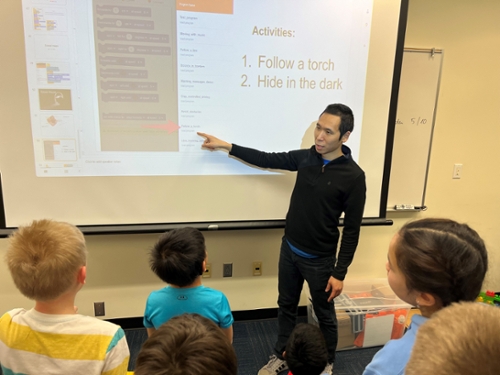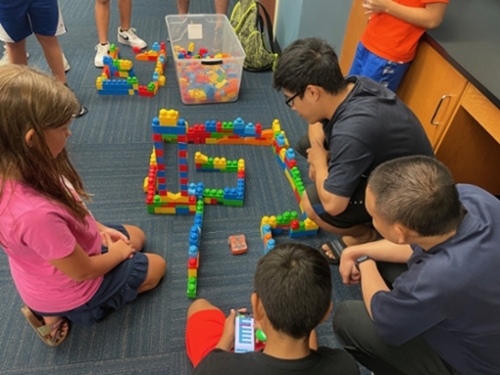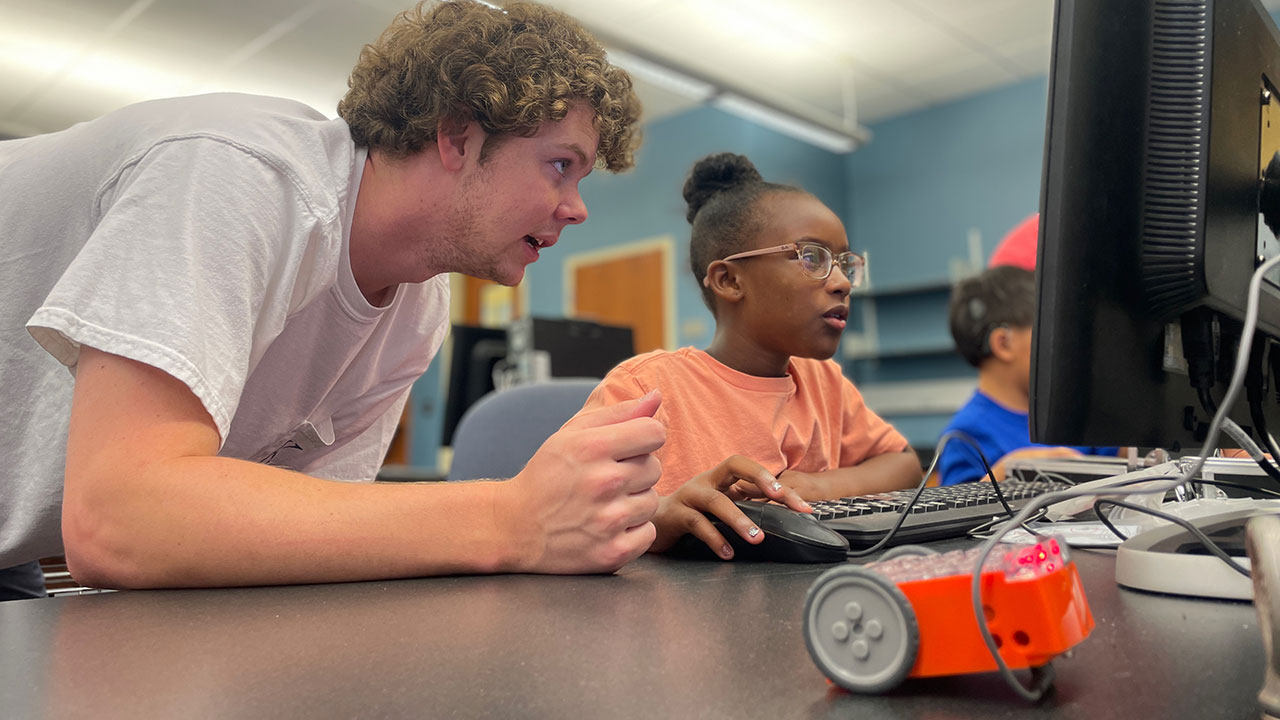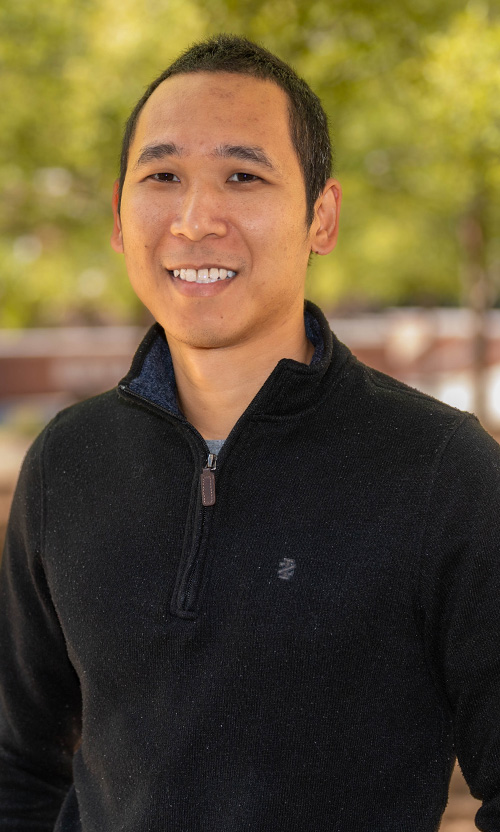Professor in CSSE uses after-school program to introduce children to AI
Published: Feb 24, 2023 3:35 PM
By Joe McAdory
Hand-held robots rolled toward the light, toward the darkness, left, right, and straight – whatever they were programmed to do. The programmers? Schoolchildren.
Almost 20 children gather for an hour each Thursday in Anh Nguyen’s K-6 AI Club and learn developmental approaches to computing, programming, robotics and artificial intelligence (AI). Nguyen, an assistant professor in computer science and software engineering, provides students with new AI challenges each week, including coding a robot to navigate a maze, roll toward points of light, or even train AIs to recognize your objects and owner’s faces.

“We use programming, robots, and artificial intelligence to motivate them and inspire them into building a mindset for critical thinking,” said Nguyen. “Programming robots through AI is part of fascinating technologies that are vehicles for them to eventually build actual, larger and more useful machines in the future using these engineering, critical-thinking mindsets.”
Jennifer Hoang, a fifth grader at Yarbrough Elementary School in Auburn, agrees.
“I’ve learned how to do a lot of cool stuff and we get to learn new things every single week,” she said. “Learning about robotics is important because it can help us in the future with new inventions.”
Once the class is assembled, Nguyen first offers a demonstration about the week’s activity, or challenge. The students, often helped by adults and/or computer science and software engineering students, are provided iPads to program robots and are given an hour to complete the challenge.
“For example, one day we built a robot that can solve two mazes at the same time,” Nguyen said. “Basically, children use code to command the robots, place a robot in a start location and it needs to find a way out of the first maze. Then they put the same robot, without any modification, into the second maze and it should find its way out of that one too, all by itself.

“Students program robots using what we call block-based programming languages (Scratch). Specifically, they drag and drop the code blocks so that they can build a program. They hit a button it will transfer that code to the robot. They press a button and the robots will run according to the instructions from the student. If it fails, through trial and error the students figure out what's wrong with their code.”
Schoolchildren aren’t the only benefactors. So are a handful of CSSE students, who assist Nguyen with the class.
“For a lot of them, they are learning how to develop better communication skills, how they can take complex concepts, and distill them down to very simple words to teach the kids,” Nguyen said. “It takes time to practice, but’s helping them grow as potential future teachers.”
Gavin Palmer, whose 7-year-old son, Webster, has been a spring semester regular, believes it’s, “Important for children to have a diversity of experiences.
“Many parents and children aren’t exposed to this type of class, or club. This makes it much easier to allow your children to become exposed to these types of technologies, because I believe automation, robotics and machine learning will probably play a large part of the future.”
The initiative, which began in the fall semester, is part of Nguyen’s 2022 National Science Foundation’s Early Faculty Development CAREER Award. His project, “Harnessing external knowledge to improve computer vision robustness, explainability and user accuracy,” includes an outreach component – the K-6 AI Club.
“It’s very important to reach children at a young age,” Nguyen said. “There are many other worthwhile after-school activities for children, but, as far as I know, this public-serving AI club is the first of its kind in Alabama. Exposing children to artificial intelligence, robots and watching them have fun with these intelligent machines is extremely rewarding.”
Media Contact: , jem0040@auburn.edu, 334.844.3447
Third grader Zoe Akins receives instruction from computer science and software engineering student Travis Thompson.


